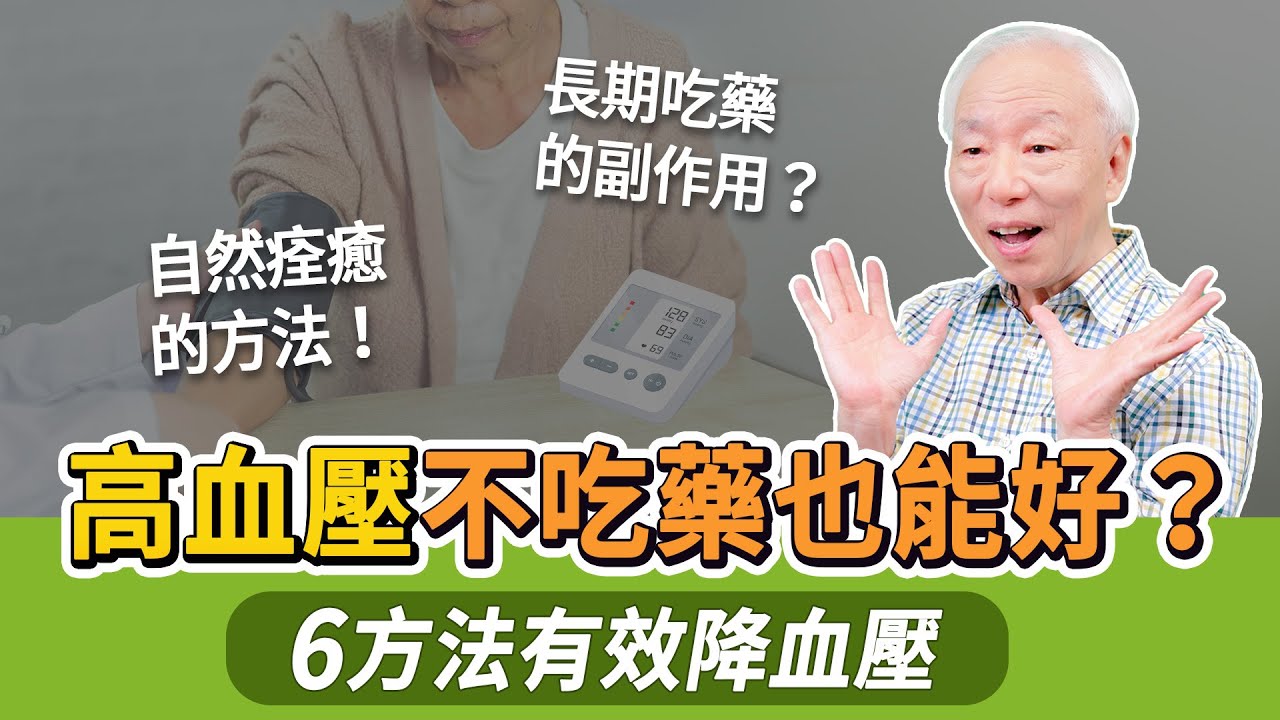How to Stop Taking Blood Pressure Medication Safely | The Nutritarian Diet | Dr. Joel Fuhrman
Summary
TLDRThis video highlights the dangers of abruptly discontinuing medication for blood pressure and blood glucose without proper supervision. The speaker emphasizes the importance of gradually reducing medications under a doctor’s guidance, as doing so too quickly can lead to dangerous side effects, such as dangerously low blood pressure or glucose levels. The speaker shares a cautionary tale about a patient whose kidney function was damaged due to prolonged overmedication, stressing that careful monitoring is essential to avoid such risks. Overall, the video advocates for a cautious, well-planned approach to managing medications.
Takeaways
- 😀 Gradually reduce medication under the supervision of a physician, using blood pressure and glucose readings as a guideline.
- 😀 A blood pressure reading below 120 is an indicator to begin reducing medication with your doctor's guidance.
- 😀 It's crucial to have a plan for tapering off medication to avoid dangerous drops in blood glucose or blood pressure.
- 😀 Abruptly stopping medication without a plan can lead to dangerously low blood glucose or blood pressure, increasing the risk of passing out or injury.
- 😀 Low blood pressure due to improper medication reduction can lead to dangerous situations, such as falls or damage to organs like the kidneys.
- 😀 Medications that are reduced too quickly or not adjusted correctly can cause side effects, including kidney damage.
- 😀 The importance of monitoring blood pressure and glucose when making dietary changes, as it can impact how medications affect the body.
- 😀 Many individuals are overmedicated due to doctors leaving them on medications for too long, potentially leading to side effects like kidney dysfunction.
- 😀 Long-term use of medications like ACE inhibitors can cause abnormalities in kidney function if blood pressure is not carefully managed.
- 😀 The danger of medications can be increased if they're not adjusted properly, particularly when dietary changes reduce the need for medications.
Q & A
What is the recommended guideline for blood glucose and blood pressure in the script?
-The guideline suggested is to aim for one reading below 120 for both blood glucose and blood pressure. This is to help individuals gradually reduce their medication under the supervision of their physician.
Why is it dangerous to stop medications without a plan?
-Stopping medications suddenly or without a plan can cause blood glucose or blood pressure levels to drop too low, potentially leading to serious health risks such as passing out or causing physical harm like head injuries or kidney damage.
What specific health issues can arise from stopping medication too abruptly?
-Abruptly stopping medications can lead to dangerously low blood pressure, which can result in fainting, falling, and potentially injuring oneself. In some cases, this can also damage kidneys due to excessively low blood pressure.
What was the example of harm caused by improper medication reduction given in the transcript?
-The script mentions a case from about 20 years ago where a person was left on an ACE inhibitor medication for too long, leading to abnormal kidney function and dangerously low blood pressure that negatively affected their health.
What role does the physician play in reducing medication safely?
-A physician's role is crucial in overseeing the gradual reduction of medication. They help ensure that the medication is cut back safely and at the right pace, minimizing the risks associated with sudden changes.
Why is it important to gradually reduce medication when managing blood pressure or blood glucose?
-Gradual reduction is important because it allows the body to adjust to lower medication levels without triggering dangerous drops in blood pressure or glucose. This reduces the risk of complications.
What happens when blood pressure is over-treated with medication?
-Over-treatment with blood pressure medications can lead to excessively low blood pressure, which can cause dizziness, fainting, and potentially serious complications such as kidney damage.
What findings were observed in the study of 450 people referenced in the script?
-The study found that many individuals were left on medications too long, resulting in their blood pressure being overly treated and too low, which was the primary issue leading to negative health effects.
How can diet interact with the side effects of medications?
-Diet can amplify the side effects of medications, particularly when medications are reduced. As medications become less necessary, the potential for harmful side effects increases, especially if blood pressure or blood glucose levels drop too much.
What is the key takeaway from the script regarding managing medications?
-The key takeaway is that it is essential to gradually reduce medications under a doctor's supervision, and not to make abrupt changes, in order to avoid complications like dangerously low blood pressure or glucose levels.
Outlines

このセクションは有料ユーザー限定です。 アクセスするには、アップグレードをお願いします。
今すぐアップグレードMindmap

このセクションは有料ユーザー限定です。 アクセスするには、アップグレードをお願いします。
今すぐアップグレードKeywords

このセクションは有料ユーザー限定です。 アクセスするには、アップグレードをお願いします。
今すぐアップグレードHighlights

このセクションは有料ユーザー限定です。 アクセスするには、アップグレードをお願いします。
今すぐアップグレードTranscripts

このセクションは有料ユーザー限定です。 アクセスするには、アップグレードをお願いします。
今すぐアップグレード関連動画をさらに表示

#1 Best Way to Lower Blood Pressure Naturally and Fast

Bioquímica Clínica 02/01

How to treat hypertension | practical tips for healthcare professionals

不吃藥能自然降血壓?6招降血壓,效果跟吃藥一樣好!天氣冷,2動作自救保命。顧血管,這類食物少吃。注意!一直吃藥會有這風險。3食物護心降血壓。容易情緒失控,2個動作穩血壓|胡乃文開講Dr.HU_231

HIGH BLOOD PRESSURE को ठीक करने का दुनिया का BEST TREATMENT METHOD | Manas Samarth

Blood Pressure Medicines - What They Are, How They Work, Side Effects, & More
5.0 / 5 (0 votes)
